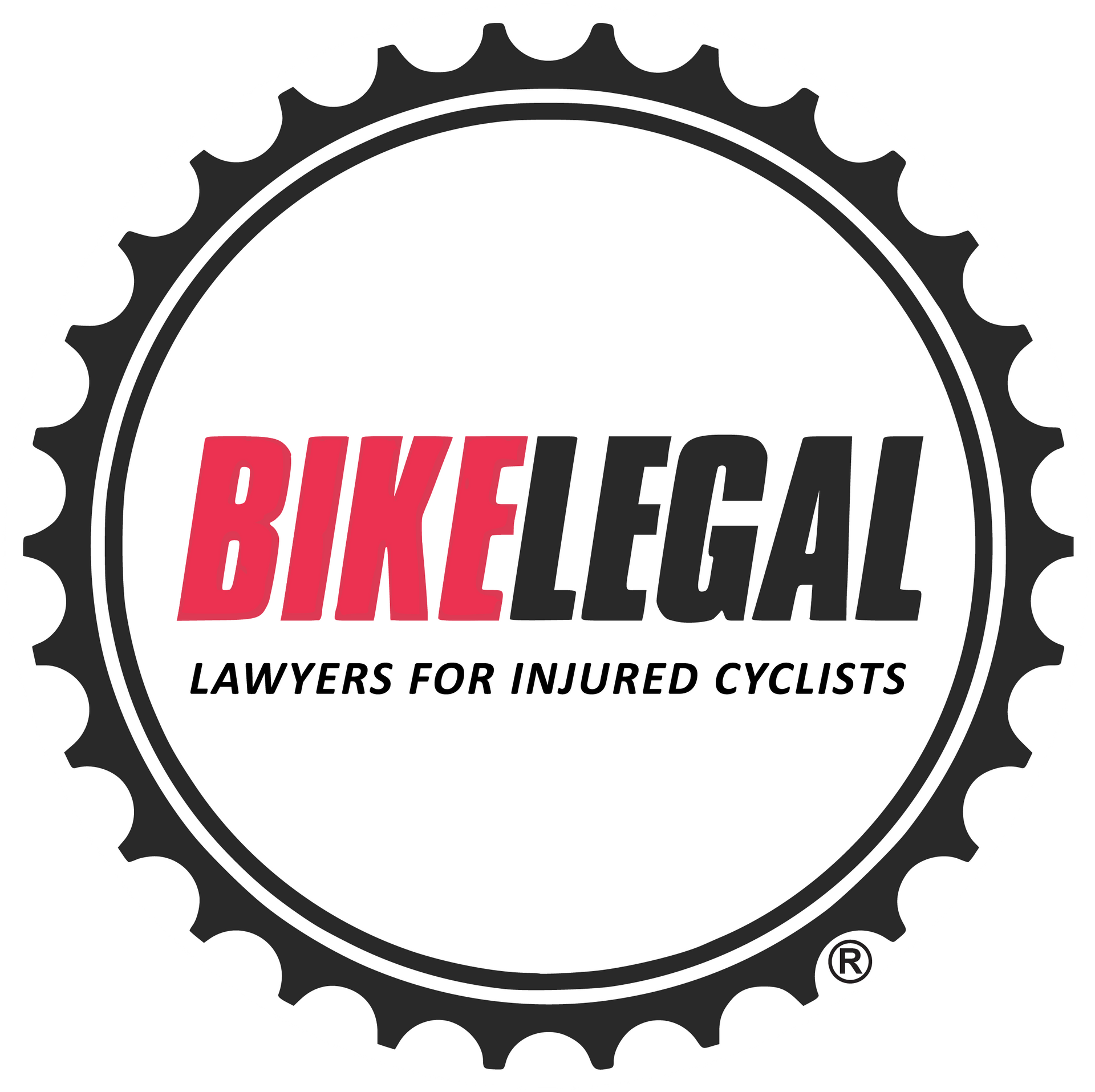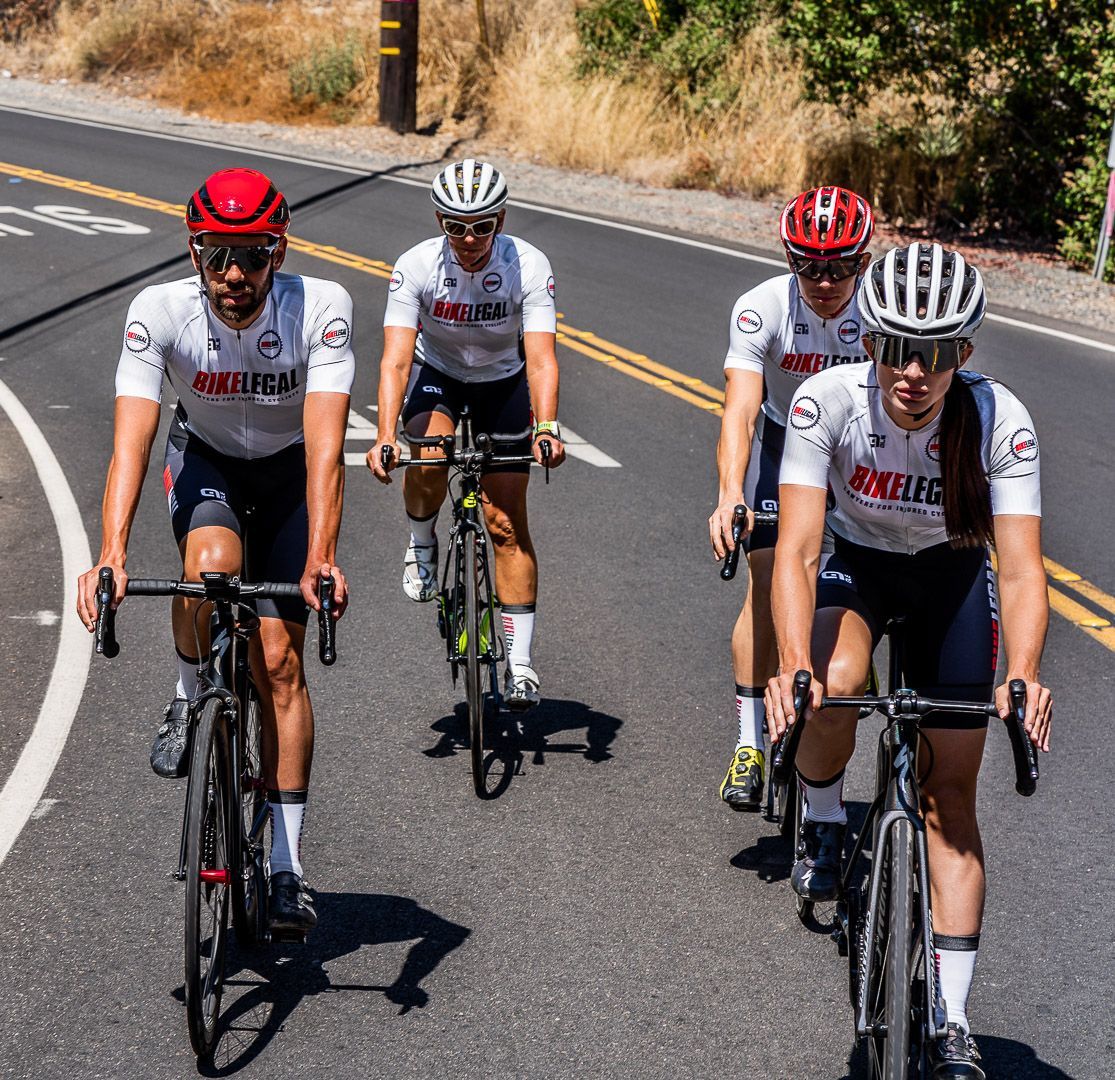Do's and Don'ts: What Not To Say To An Insurance Company After A Bicycle Accident
Follow us on
social media!
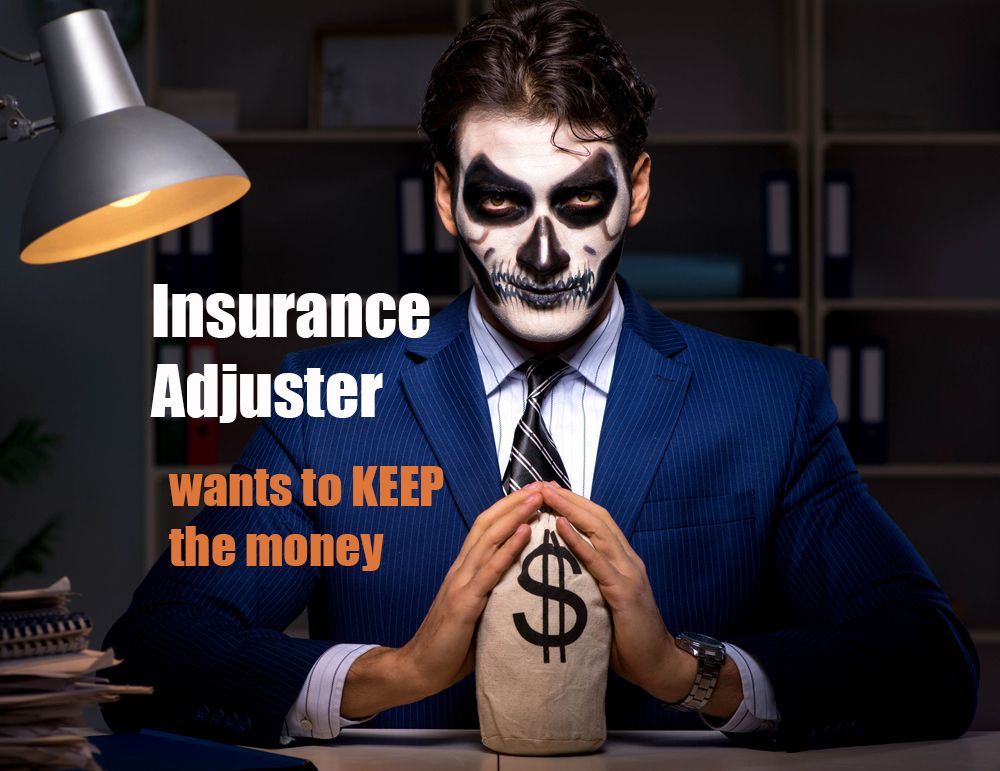
Imagine you're shaken up after a bike accident, and an insurance adjuster calls with a friendly voice and a quick settlement offer. It sounds tempting, right? But before you say anything, hit the brakes.
Turns out, the wrong words to an insurance company may drastically reduce your chance of getting the compensation you deserve for your injuries and damages.
Here's a quick rundown of what we'll cover:
- Why admitting fault is a big no-no
- How to discuss injuries without hurting your claim
- What NOT to say about the accident itself
- The dangers of recorded statements
- Should you accept that first settlement offer?
Let's dive in – protecting your claim might be easier than you think.
What Happens After a Bicycle Accident?
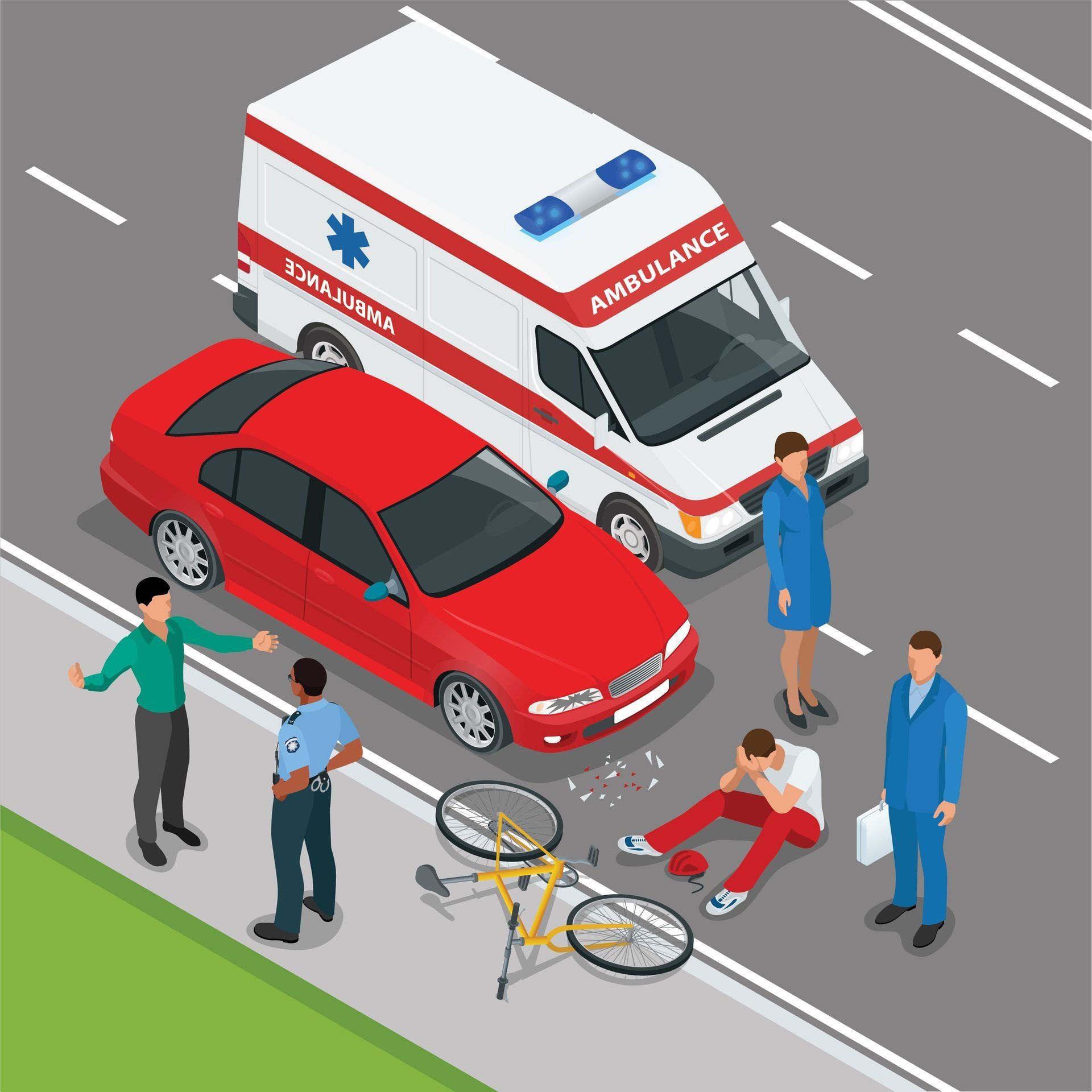
The moments after a bicycle accident are a blur. You might be dealing with shock, pain, or even serious injuries. But taking the right steps right away can protect your health and your right to fair compensation.
First Things First: Safety, Medical and Documentation
- Call 911: Even if you think your injuries are minor, it's crucial to get checked out by medical professionals. Some injuries don't show up immediately.
- Call the Police and File a Police Report: Ask the responding police to write a traffic collision report. If a police report is not filed, you may face difficulties in filing an insurance claim. Get the business card of the responding police officer for reference.
- Document the scene: If you are able, take photos or videos of the following:
- Any visible injuries
- The surrounding area, including traffic signals, road markings, and skid marks
- The position of the vehicles involved in the accident and the crash site
- Road conditions
- Any damage to the other vehicle(s) involved. Get contact information from witnesses as well. Ask for their name, phone number, and a brief description of what they saw.
- The damage to your bike and other property.
Related Article: What To Do After a Bicycle Crash - Bike Legal
Why Is the Driver's Insurance Contacting Me?
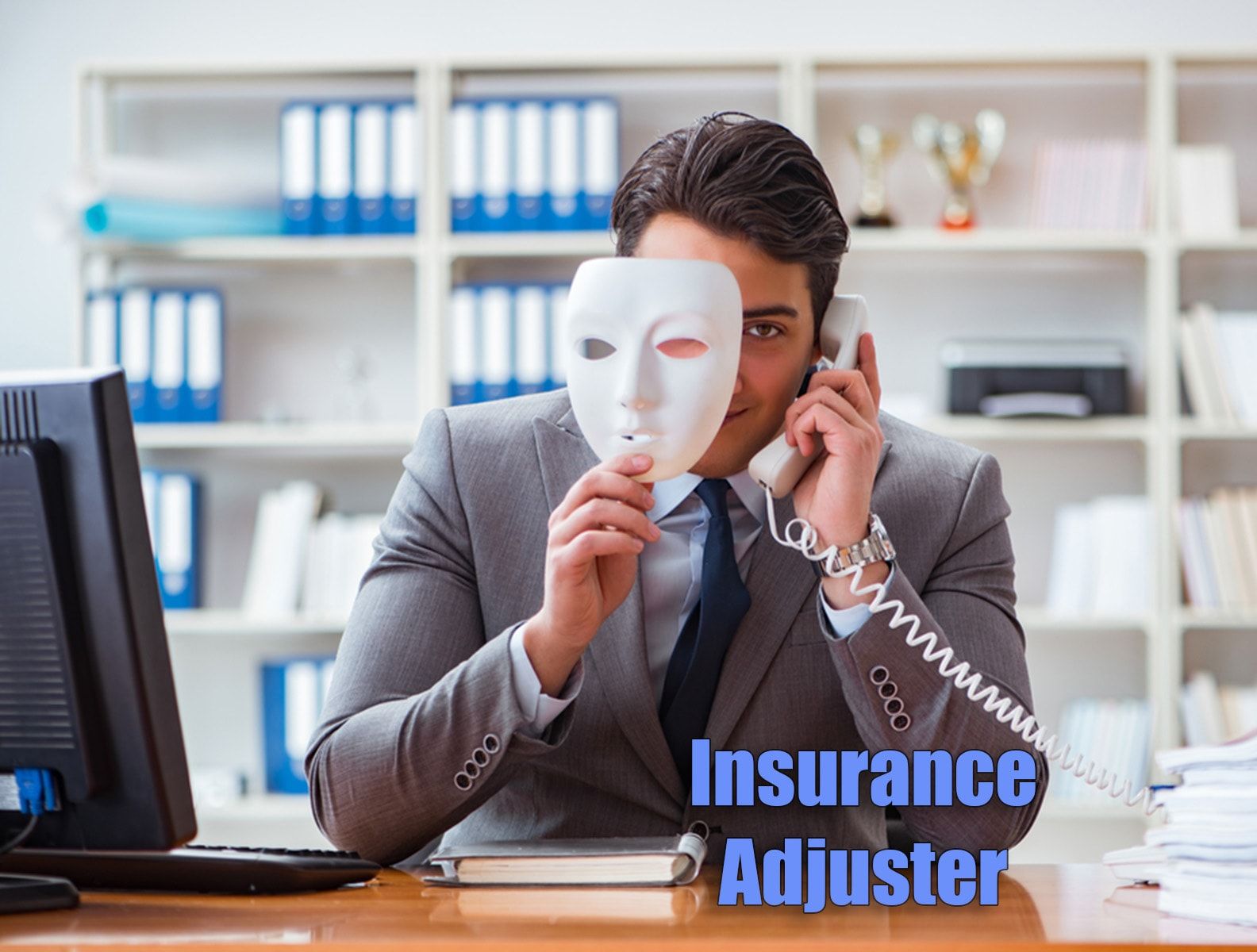
You may get a call from a friendly-sounding person introducing themselves as an insurance adjuster from the other driver's insurance company. They want to know how you're doing and ask for your side of the story. But do they have your best interest in mind?
The answer is NO. While the call might seem harmless, remember who they represent. The driver's insurance company has one primary goal – to minimize the amount they have to pay out for your claim.
The Role of the Insurance Adjuster
Insurance adjusters are not on your team. They're trained investigators who work to:
- Gather Information: They want to know everything about the accident, your injuries, and even your medical history.
- Find Contradictions: They'll compare your statement to the police report and other evidence to find any inconsistencies that could weaken your claim.
- Shift Blame (Even Slightly): If they can get you to admit even partial fault for the accident, it can significantly reduce your compensation.
- Push for Quick Settlements: Adjusters might offer a lowball settlement early on, hoping you'll accept before realizing the true extent of your damages.
- Protect their Bottom Line: Insurance is a business. Their goal is to make money, not spend it.
What Should I Discuss with the Driver's Insurance?
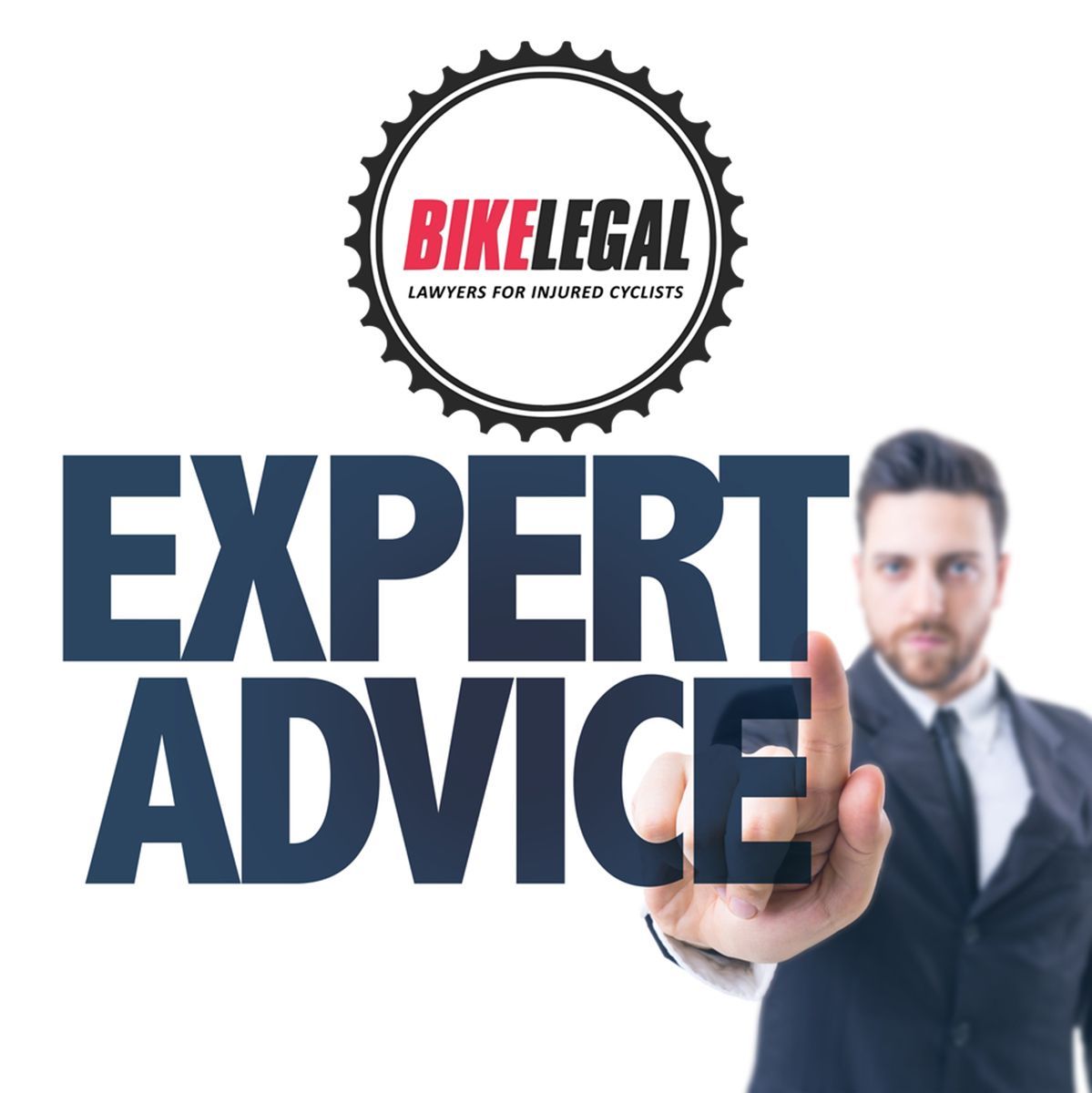
The key to dealing with the other driver's insurance company is to keep things simple and factual. Here's what you need to keep in mind:
What Should I Share?
- Basic Information: Provide your name and contact information
- Factual Accident Details: Give the date, time, and location of the accident. You can reference the police report for accuracy if needed.
- Police Report Number: You can provide the report number but avoid discussing any conclusions the report may contain.
What Should I Avoid Discussing
- Fault: Never admit fault, apologize, or take any blame for the accident. Let the evidence speak for itself.
- Injuries: It's okay to confirm you were injured, but don't downplay or exaggerate anything. Stick to the facts ("I went to the doctor/hospital, they diagnosed me with...").
- Medical History: Don't provide information about past injuries or any pre-existing conditions.
- Recorded Statements: Politely decline any requests for a recorded statement without first speaking to an attorney.
The Golden Rule: Less is More
When in doubt, keep it brief. The less you say, the harder it is for the insurance company to twist your words or use anything against you.
The Importance of Legal Counsel
Before engaging in any in-depth conversations with the adjuster, consult with a bicycle accident lawyer. An attorney will:
- Handle All Communications: They can take all communications with the other driver's insurance off your hands, shielding you from stressful phone calls and manipulative questions.
- Protect Your Rights: An attorney understands the tactics insurance companies use and will make sure you're not pressured into saying anything that could jeopardize your claim.
- Advise on Settlement Offers: Your lawyer can help you assess the true value of your damages and prevent you from accepting an unfair settlement offer.
Also Read: How To Determine Who Is At Fault In A Bicycle Accident Case
Don't go it alone. Bike Legal understands the complexities of bicycle accidents and the specific challenges cyclists face when dealing with insurance companies.
Our team of experienced bicycle accident attorneys can:
- Be Your Voice: We'll handle all communication with the insurance adjuster, ensuring your rights are protected throughout the entire process.
- Fight for Maximum Compensation: We know the tactics insurance companies use to minimize payouts, and we'll work tirelessly to get you the compensation you deserve for your injuries, medical bills, and lost wages.
- Keep You Informed: We'll provide regular updates on your case and answer any questions you have along the way.
What If There is a Shared Fault in My Bicycle Accident?
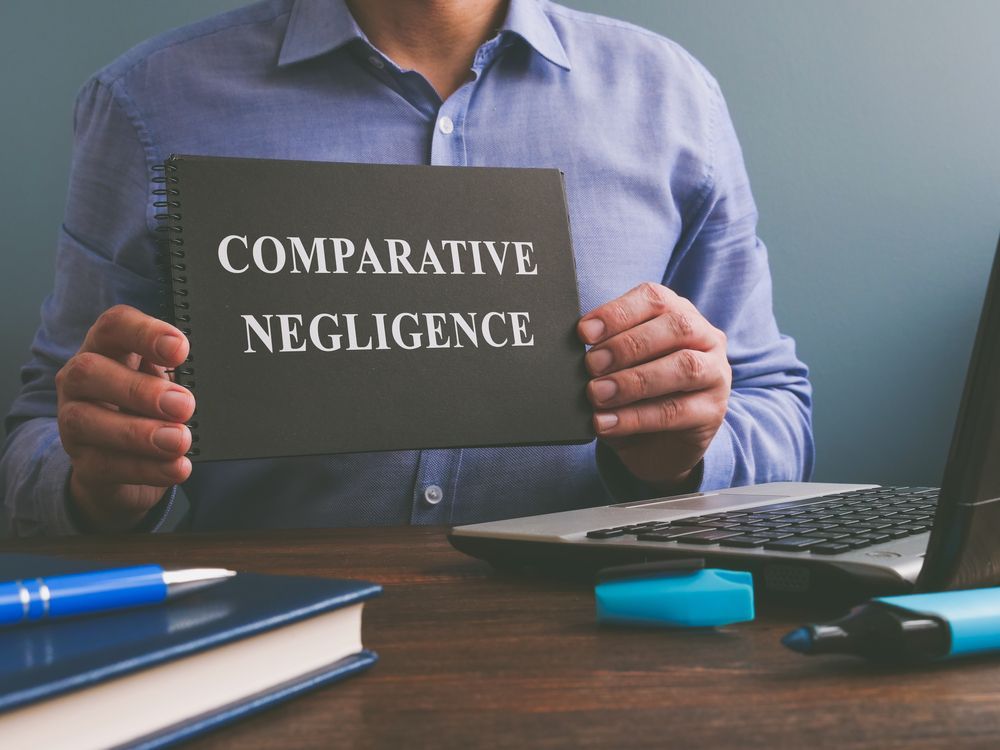
Bicycle accidents aren't always black and white. Sometimes, both the cyclist and the driver may share some degree of fault.
Understanding Shared Fault
Each state has laws regarding how shared fault – also known as "comparative negligence" – affects accident claims. Here's the basic breakdown:
- Pure Comparative Negligence: You can still recover compensation even if you're partially at fault, but your award will be reduced by your percentage of fault (e.g., if you're 20% responsible, your compensation is reduced by 20%).
- Modified Comparative Negligence: You can only recover damages if you're less than 50% or 51% at fault (depending on the state). If you're found to be more at fault than the other driver, you receive nothing.
- Contributory Negligence: This is the harshest type. If you are found even 1% at fault, you cannot recover any compensation. Only a few states follow this rule.
Why You Should NEVER Admit Fault
Even if you suspect you might be partially to blame, never admit this to the other driver's insurance company. Here's why:
- Insurance adjusters are not your friends: They'll use any admission of fault to attempt to dramatically reduce your payout or deny your claim altogether.
- Fault is complex: What seems obvious at the scene of the accident might look entirely different after a thorough investigation.
- You might not be at fault at all: Traffic laws, rules of the road, and bicycle-specific legislation can be complicated. An experienced cycling accident attorney will understand the nuances and fight to prove you were not to blame.
What to Do Instead?
- Focus on the facts: Simply report the accident details without expressing any opinions about the fault.
- Contact a bicycle accident attorney IMMEDIATELY: A bicycle accident lawyer will:
- Analyze the specifics of your case
- Advise you on your rights based on your state's laws
- Handle all communications with the insurance company to protect you from saying anything that can hurt your claim
- Let the experts determine fault: Attorneys work diligently to assess fault accurately before engaging in negotiations.
Don't underestimate the value of legal representation when a shared fault is a possibility. It could be the difference between getting the compensation you deserve and getting nothing at all.
When Should I Contact a Bicycle Accident Attorney?
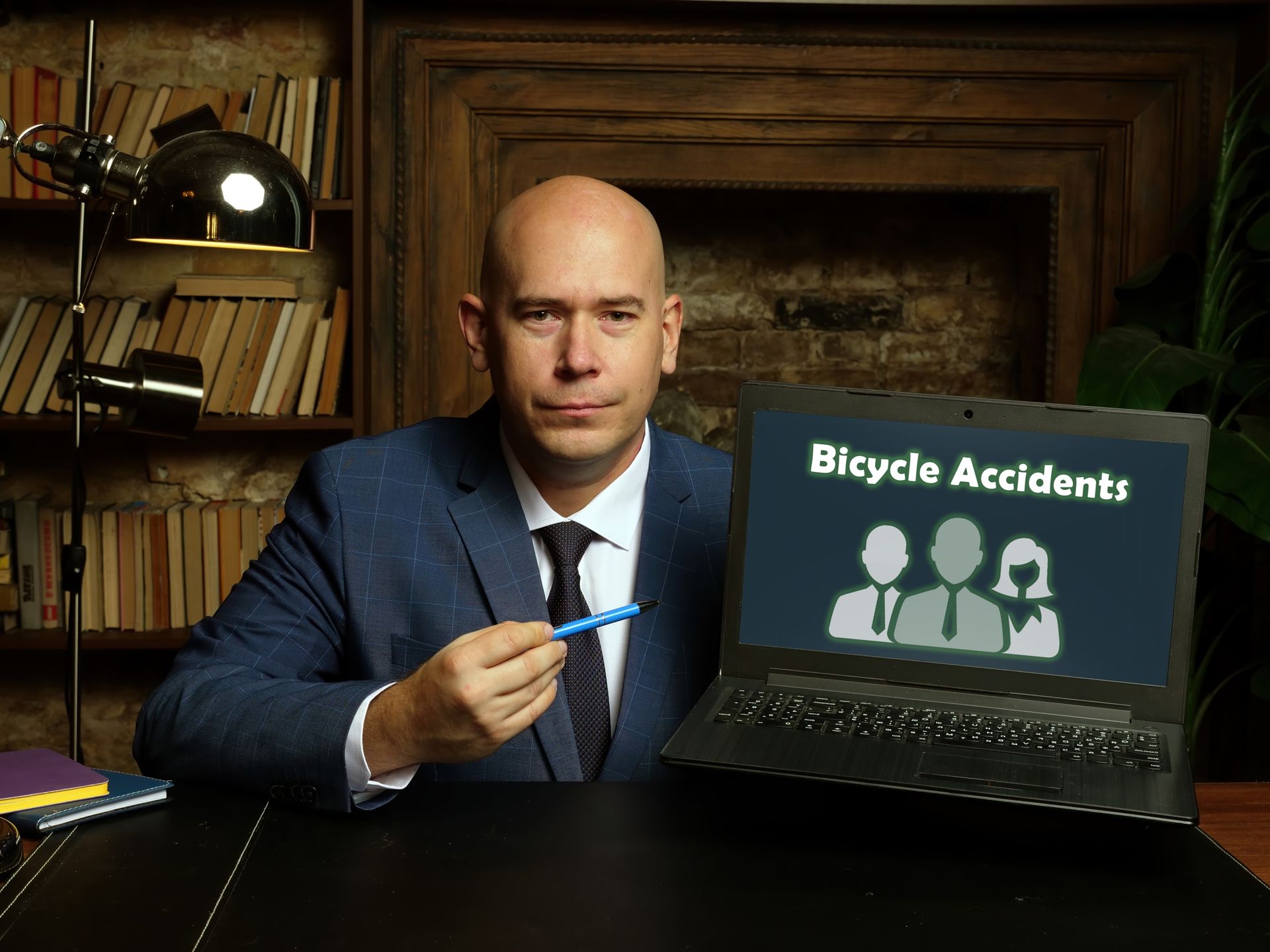
While you might be tempted to handle the insurance claim yourself, there are certain situations where an experienced bicycle accident attorney is practically a must-have:
You Need an Advocate on Your Side
Insurance companies are for-profit businesses. They're not in the business of handing out large payouts. A skilled attorney levels the playing field by:
- Handling the Legal Jargon: Insurance and legal terminology can be baffling. Your lawyer knows how to speak the language and cut through the red tape.
- Gathering Strong Evidence: Attorneys know what evidence is needed to build a strong case, and they have the resources to gather it.
- Assessing the Value of Your Claim: It's not just your immediate medical bills. An attorney can help you factor in lost wages, future medical care, pain and suffering, and any long-term effects of the injury.
- Fighting for Fair Compensation: Insurance companies will try to lowball you. Your lawyer is there to fight for every dollar you’re entitled to.
Red Flags That You NEED an Attorney
- Serious Injuries: If you are hospitalized, require ongoing medical treatment, or have injuries that will affect your long-term health, you need an attorney.
- Disputes about Fault: If the insurance company tries to pin the blame on you, get a lawyer involved immediately.
- Lowball Settlement Offers: Never accept a settlement without consulting an attorney first. Chances are, their offer is far less than what your claim is actually worth.
- Pre-Existing Conditions: If the insurance company tries to attribute your injuries to a previous condition, your lawyer will fight back.
- Complex Cases: If multiple vehicles were involved or traffic laws are unclear, an attorney can untangle the mess.
The Benefits of Early Consultation
The sooner you connect with an attorney, the better. A lawyer can:
- Preserve Evidence: Crucial evidence is often time-sensitive. Your attorney will immediately start gathering and preserving it.
- Prevent Mistakes: They can guide you from the start so you don't accidentally say or do anything that will damage your claim.
- Give You Peace of Mind: Recovering from a bike accident is stressful enough. Letting an expert handle the legal side lets you focus on healing and getting your life back on track.
Most bicycle accident lawyers offer free consultations – you have nothing to lose and everything to gain.
Related Article: What to Do After a Bicycle Accident: A Cyclist's Guide (Checklist)
Will a Bicycle Accident Attorney Negotiate a Greater Settlement Than I Can?
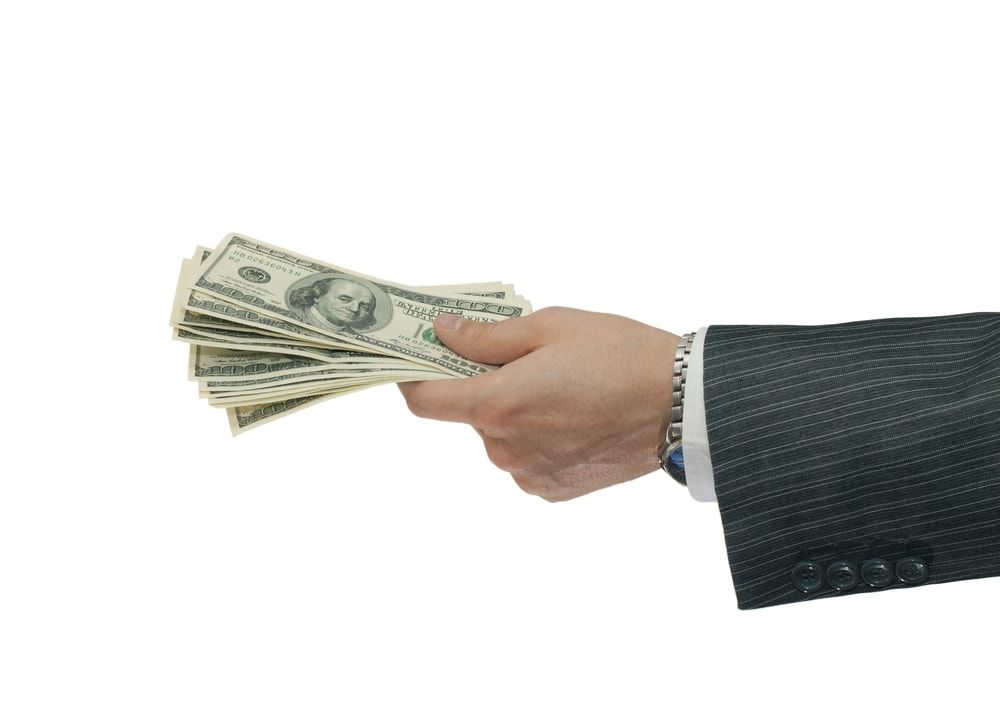
The short answer? In almost every case, yes. Bicycle accident attorneys are skilled negotiators who understand the tactics insurance companies use to lowball settlements. Here's why they get better results:
They Know Your Claims Value
Insurance companies often present a quick, low settlement offer, hoping you'll accept it before you understand what your case is really worth. Attorneys factor in:
- The full extent of your injuries: They'll work with medical experts to ensure all current and future costs are considered.
- Lost wages and earning potential: If the accident affects your ability to work, they'll calculate the long-term financial impact.
- Pain and Suffering: Injuries can cause significant emotional distress and impact your quality of life. Experienced attorneys know how to quantify this and demand fair compensation.
They Build a Compelling Case
It's not just about stating the facts; attorneys:
- Gather evidence: They obtain police reports, witness statements, medical records, and may even work with accident reconstruction specialists.
- Understand the law: They know the relevant traffic laws, bicycle-specific regulations, and legal precedents that can strengthen your claim.
- Anticipate insurance tactics: They are familiar with the tricks at-fault party's insurer use and have counter-strategies to protect you.
They Are Not Afraid to Go to Court
Insurance companies typically are more likely to offer a fair settlement if they know your attorney is prepared to take your case to trial. Juries often sympathize with injured cyclists, making this a powerful bargaining chip.
What a Difference a Lawyer Can Make
Imagine you were hit by a negligent driver and suffered a broken leg. The insurance company offers you $15,000. You might think that sounds good since your immediate medical bills were around $10,000.
However, an attorney might know that:
- Future treatment and rehabilitation will likely cost more.
- You've missed several weeks of work, and your ability to perform your job might be affected long-term.
- You deserve compensation for your pain, suffering, and the loss of enjoyment cycling brings to your life.
With their expertise and negotiation skills, an attorney may secure a much larger settlement.
Why Should I Seek a Bicycle Accident Attorney Rather Than Any Personal Injury Attorney?
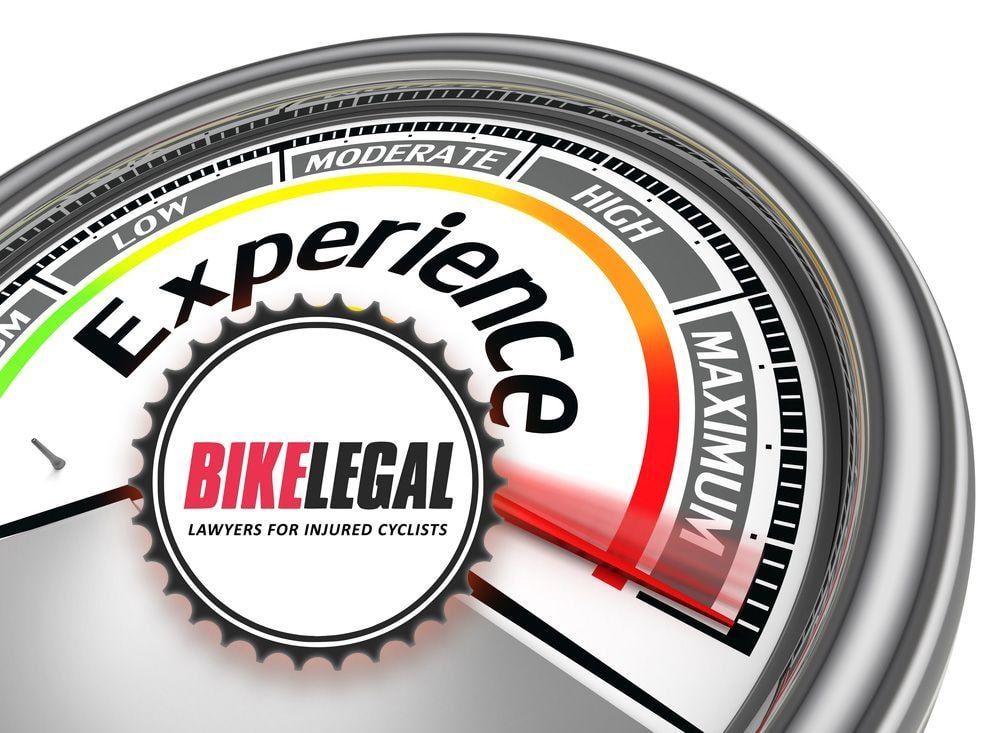
While all personal injury attorneys handle accident cases, a bicycle accident attorney brings a level of specialized knowledge that can make a significant difference in your case outcome.
It's Not Just About the Law
Sure, any personal injury attorney knows the general concepts of negligence and how insurance claims work. But bicycle accidents involve unique issues that require specialized understanding:
- Bicycle-Specific Laws: Traffic laws regarding cyclists can be complex and vary from state to state. A specialized attorney knows the ins and outs of these laws and how to argue them in your favor.
- The Dynamics of Cycling Accidents: Car vs. bicycle crashes have unique physics. A dedicated cycling attorney understands how to investigate these specific types of accidents and build a case around those factors.
- Injuries Common Among Cyclists: Broken collarbones, road rash, and concussions are common cycling crash injuries. An attorney specializing in cycling injuries understands their severity and long-term impacts.
- Bias Against Cyclists: Let's face it, some drivers (and even insurance adjusters) hold unfair biases against cyclists. Bicycle accident attorneys know how to combat this bias and ensure you get a fair hearing.
Beyond Knowledge: It's About Passion
Many bicycle accident attorneys are cyclists themselves. They understand:
- The Importance of Your Bike: It's not just transportation. A good bicycle attorney knows the value of your gear and will fight to get you fully compensated for the damage.
- The Emotional Loss: A cycling injury isn't just physical. An experienced attorney understands the emotional toll and the impact it has on your love of the sport.
- The Cycling Community: Specialized attorneys are often connected to the local cycling scene. They may have relationships with medical professionals who understand cyclist-specific injuries and can refer you to organizations or support groups if needed.
Example: Fighting the "I Didn't See Them" Defense
Many drivers try to excuse hitting a cyclist by claiming they didn't see them. A bicycle accident attorney knows how to counter this by:
- Investigating road conditions, lighting, and visibility factors.
- Citing traffic laws that require drivers to be vigilant in spotting cyclists.
- Demonstrating that the driver was distracted or negligent.
A specialized bicycle accident attorney is your best chance at getting the maximum compensation and fighting for the rights of cyclists as a whole.
How Do I Know If I Have a Bicycle Accident Case?
Not every bicycle accident automatically translates to a successful insurance claim. However, there are a few key factors that suggest you have a potentially strong case:
1. Someone Else Was at Fault
The foundation of any bicycle accident claim is proving someone else's negligence caused your injuries. This means the driver (or another party) must have done something wrong, such as:
- Running a red light or stop sign
- Failing to yield
- Speeding
- Distracted driving
- Opening a car door into your path ("dooring")
- Driving under the influence
2. You Suffered Injuries and Damages
To have a case, you need to have suffered some form of damage as a result of the accident. This could include:
- Physical Injuries: Even seemingly minor cuts and bruises warrant a medical evaluation. Some injuries (like whiplash or head trauma) don't show up immediately.
- Property Damage: Document the damage to your bike, helmet, cycling gear, and any other personal property affected.
- Financial Losses: Medical bills, lost wages (both current and future if injuries are serious), cost of replacing your bike and gear.
- Emotional Distress: The physical and emotional trauma of an accident can take a significant toll.
3. You Have Evidence
The stronger your evidence, the stronger your case. Ideally, try to gather the following (if your injuries allow):
- Police Report: This is crucial for documenting the accident details and any citations issued.
- Witness Statements: Get the names and contact information of anyone who saw the accident.
- Photos and Video: Capture the accident scene, your injuries, damage to your bike and gear, and the surrounding area.
- Medical Records: Documenting every doctor's visit, treatment, diagnosis, and medication is essential for proving the extent of your injuries.
Factors that Can Strengthen Your Case
- Clear Liability: The more obvious it is that the other driver was at fault, the stronger your position.
- Severe Injuries: Significant injuries typically result in higher compensation.
- Strong Evidence: Thorough documentation increases your chances of a fair outcome.
Even if you're unsure, consult with a bicycle accident attorney. They offer free consultations and can analyze your specific situation to determine if you have a claim worth pursuing.
Does It Cost Anything to Hire a Bicycle Accident Attorney?

Worried about legal fees adding to your post-accident financial burden? The good news is, that most bicycle accident attorneys work on a contingency fee basis. Let's break down what that means:
No Upfront Costs
With a contingency fee arrangement, you don't pay a single cent upfront. There are no hourly fees, retainers, or hidden costs to worry about. This makes it possible for anyone to get the legal help they need, regardless of their current financial situation.
You Only Pay If You Win
Your attorney's fee is directly tied to the outcome of your case. They get paid a percentage of your settlement or court award only if they are successful in recovering compensation for you. If you don't win, you don't owe your attorney anything.
Typical Fee Percentage
The standard contingency fee in bicycle accident cases ranges between 33% - 40%. This means if bike-car accident victims are awarded $50,000, your attorney's fee would be approximately $16,500 - $20,000.
Additional Expenses
It's important to note that contingency fees typically do not cover court filing fees, expert witness costs, and other expenses associated with your case. Some attorneys may deduct these expenses from your settlement or require you to pay them out of pocket as the case progresses. Make sure you discuss all potential expenses before you sign anything.
Why Contingency Fees Work
This system benefits both you and your attorney:
- Access to Justice: You get the legal representation you need, without worrying about how to afford it.
- Motivated Attorneys: Your attorney is incentivized to fight for the best possible outcome because their payment depends on it.
The Consultation is FREE so get yours now – use it to explore your options and get all your questions answered.
Handling Post-Accident Communications with Insurance Companies
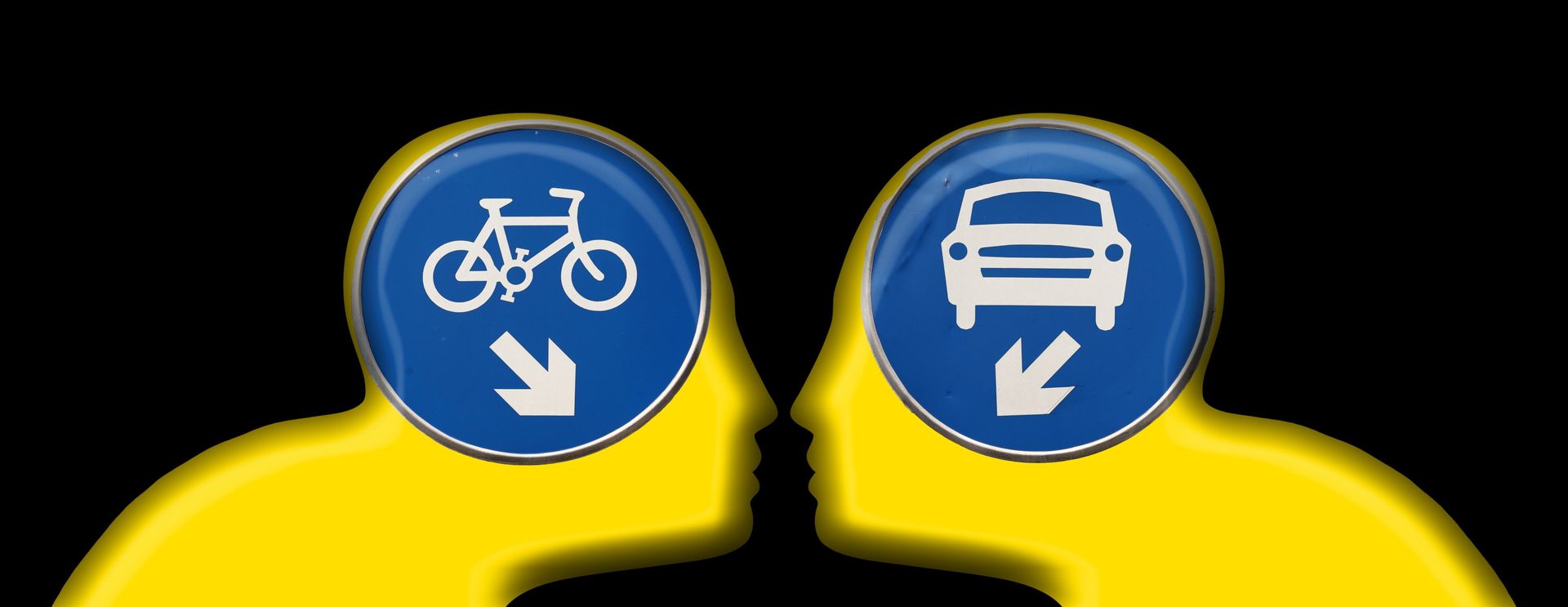
In the aftermath of a bicycle accident, it's crucial to manage conversations with insurance companies carefully. Remember, insurance adjusters are trained professionals aiming to protect their company's interests, not necessarily yours.
By understanding what to share and what to withhold, you can avoid common pitfalls that might compromise your compensation. Engaging a specialized bicycle accident attorney early on not only enhances your chances of a fair settlement but also ensures that your rights are fully protected throughout the claim process.
Don't underestimate the complexity of insurance claims or the tactics adjusters may employ. With the right legal guidance, you can focus on recovery and rest assured that your case is in capable hands, pushing for the compensation you rightfully deserve.
Ride Protected, Ride Safe, with BIKE LEGAL
At Bike Legal, we are more than just a personal injury law firm—we are dedicated cyclists representing injured cyclists. If you or someone you know has been involved in a bicycle accident, let us be your advocate.
Cyclists Representing Cyclists
At Bike Legal, our team combines a deep passion for cycling with unparalleled legal expertise. We understand the unique challenges cyclists face and are committed to securing the justice and compensation you deserve. We leverage our personal cycling experience and professional skills to thoroughly analyze every aspect of your accident, ensuring the highest compensation for your injuries and damaged property.
Unmatched Expertise and Proven Results
Specializing in bicycle accident cases, we have handled over 500 claims nationwide, providing exceptional legal advocacy with a thorough understanding of both local and national cycling laws. Our proven track record speaks to our commitment to achieving the best possible outcomes for our clients.
Committed to Cycling Safety
Beyond legal representation, Bike Legal is devoted to educating the public on road safety through our informative blog articles. We believe in fostering a community where cyclists and motorists can share the road responsibly.
Contact Bike Legal Today
Contact Bike Legal for a free consultation and experience the difference of having a dedicated team of cyclists fighting for your rights.
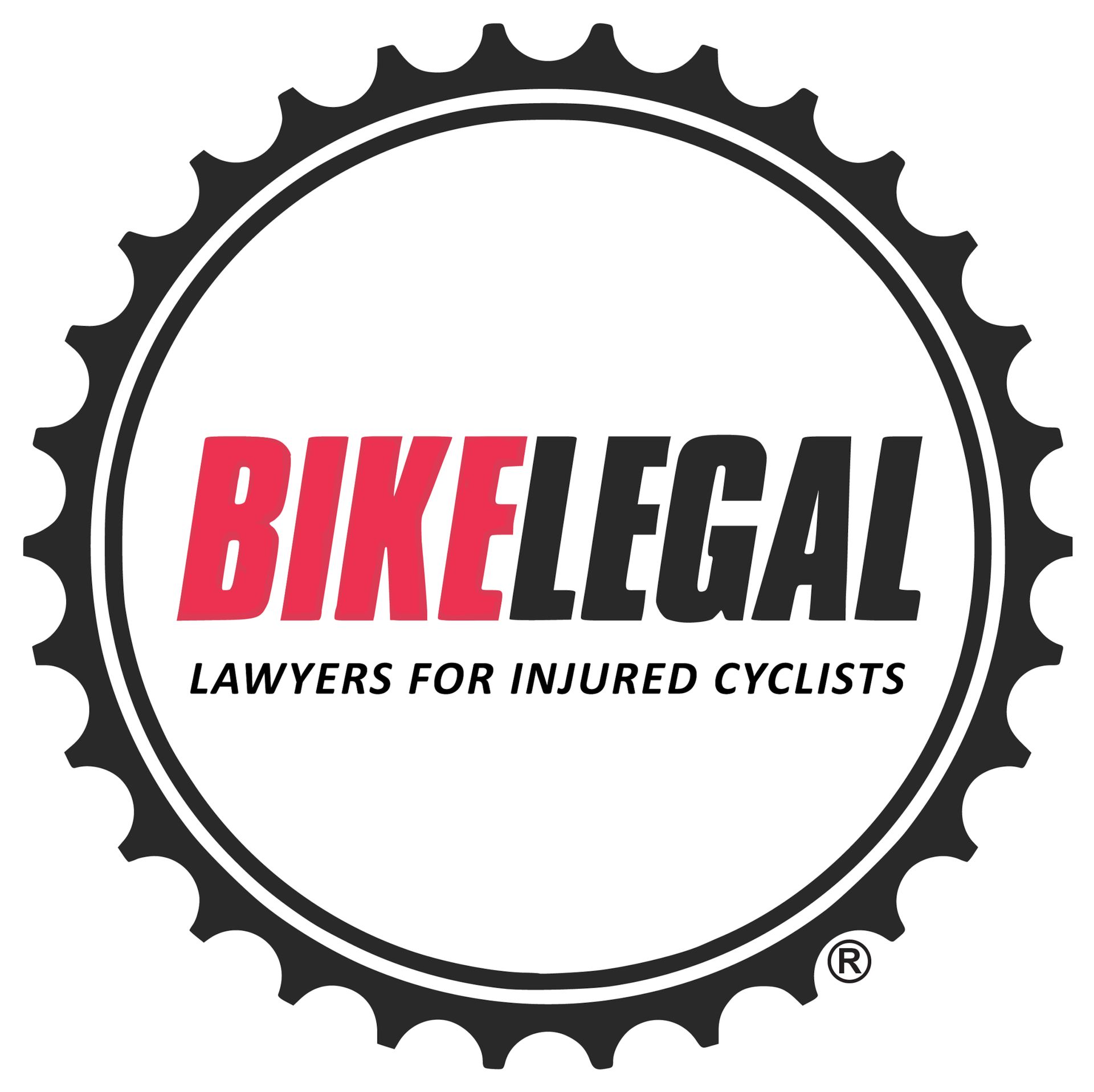
FAQs
What should you do after a bicycle accident?
- Prioritize Safety: Move to a safe location, turn on hazard lights, and call 911 if there are any injuries.
- Document the Scene: Take photos and videos, get witness information, and file a police report.
- Seek Medical Attention: Get checked out by a doctor even for minor injuries.
What not to tell a claims adjuster?
- Avoid Admitting Fault: Don't apologize or say anything that could imply responsibility for the accident.
- Don't Downplay Injuries: Be honest about your pain and the impact on your daily life.
- Don't Give a Recorded Statement: Consult with an attorney before speaking with the insurance company in depth.
What do you say when making an insurance claim?
- Stick to the Facts: Provide your contact information, policy details, and a basic description of the accident with its date, time, location, and the police report number.
- Refer Questions to Your Bicycle Accident Lawyer: If the adjuster presses you for details, politely state that your attorney will be in touch.
Read Next:
